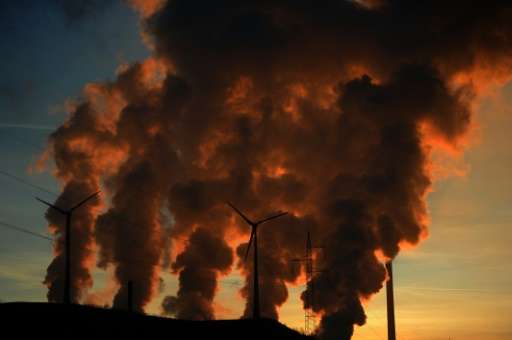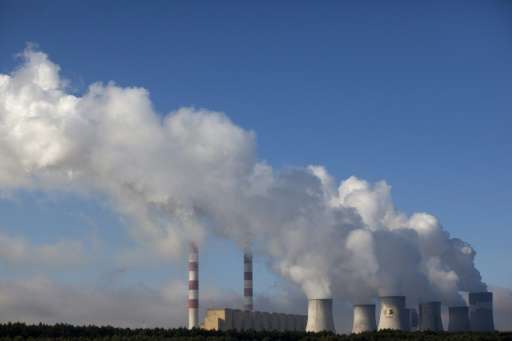G20 states must take harder line on carbon emissions: NGOs

G20 states must work harder to ensure a swifter transition to a low carbon economy, NGOs urged Thursday, notably deploring continued EU finance for fossil fuel-powered projects.
Major powers should revise upwards by a factor of six greenhouse gas reduction targets by 2030 to meet their commitments of limiting temperature rises to two Celsius under last year's Paris Accord on climate change, Climate Transparency said.
"Our report shows that while global emissions growth may be coming to an end, there is not yet the necessary dynamic to transform the 'brown' fossil-fuel based economy and into the 'green', said Climate Transparency, a grouping of international research centres, in a report released ahead of a weekend G20 summit in China.
Brown to green
"The G20 is responsible for 75 percent of global emissions, and its energy-related greenhouse gas emissions increased by 56 percent from 1990-2013," the report said.
"While the positive news is that this growth has now stalled, the negative is that there is still more brown than green on the Climate Transparency G20 scorecard," the report said, highlighting a 2009 pledge by G20 states to end fossil fuel subsidies.
Climate Transparency co-president Peter Eigen nonetheless praised summit host China for "taking more action than many countries.
"Climate leadership from China at the G20 Summit could help set the world on the right path to a future safe from the worst ravages of climate change," said Eigen as the report rated China, India, France, Germany, the United States and Britain best "in terms of investment attractiveness" while urging Russia, Saudi Arabia and Turkey to do better.

The Hangzhou summit will push for the early entry into force of last year's Paris Agreement.
The global NGO group Climate Action Network expressed concern that the European Investment Bank and the European Bank for Reconstruction and Development had assigned some 12 billion euros ($13 billion) to fossil fuel projects between 2013 and 2015 and that Brussels had earmarked some 1.6 billion euros for fossil fuel infrastructure from 2014 to 2020.
CAN Europe coordinator Maeve McLynn said EU policies such as the Emission Trading Scheme were also supporting controversial fossil fuel projects.
"The EU proudly stipulates that it has been a leading voice in advocating for strong climate action internationally. It has also pledged to phase out environmentally harmful subsidies, including fossil fuel subsidies by 2020," said McLynn.
EU 'way off track'
But she said the evidence suggested "the EU is way off track to achieve this goal" while "its public funding is out of sync with the Paris Agreement.
"The Hangzhou summit is (therefore) an opportunity for all G20 leaders to pave the way for a smooth and prosperous transition to zero carbon economies," McLynn said
Last week, organisations including Greenpeace and Friends of the Earth wrote to US President Barack Obama to express their concern that the mooted Transatlantic Trade and Investment Partnership could pose a threat to environmental protection standards.
© 2016 AFP




















